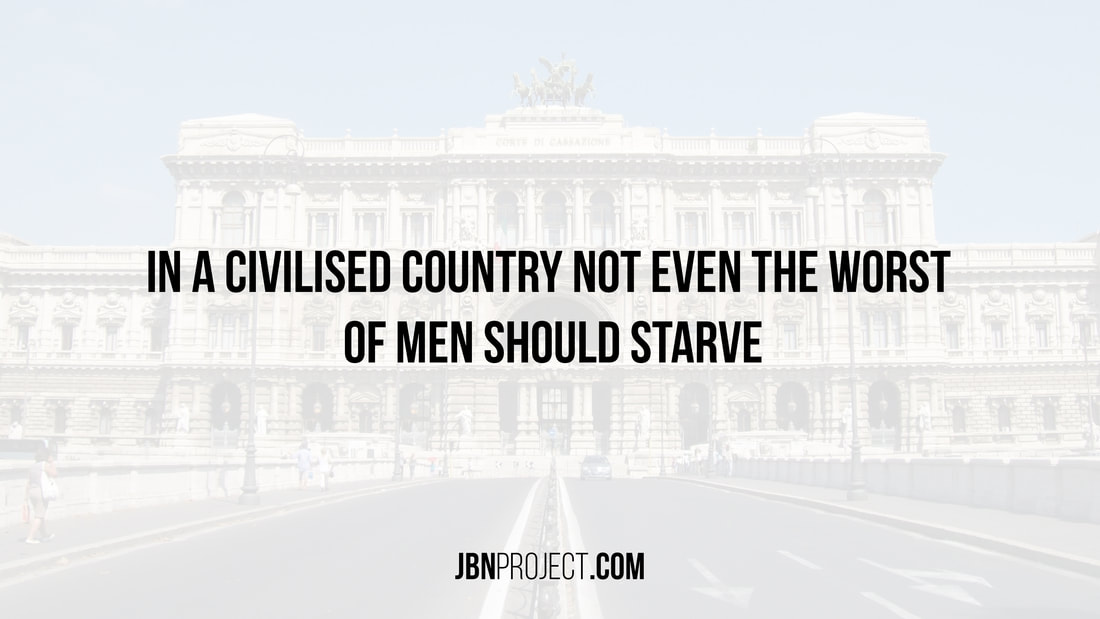|
In Italy, as of 2016, stealing a small amount of food in a moment of necessity is not a crime.
This came off the back of a case involving a man at a supermarket who paid for breadsticks and attempted to leave with cheese and sausages in his pocket, to the value of €4.07. He was initially sentenced to a €100 fine and 6 months imprisonment. The court found that the food was taken "in the face of the immediate and essential need for nourishment", ruling that in this case "humanity is more important than punishment, that the right to survival prevails over property". The Italian Court of Cassation judgement "reminds everyone that in a civilised country not even the worst of men should starve". In how many other instances can we argue for the right for survival over property? What would be the implications for taking this view further, and would they be positive? Considering this, How might we be able to address the issue of empty investment properties, squatting, unaffordable medications and waiting lists for essential services that are months long? Rather than an adversarial, legislative imperative created in courtrooms, is it possible to create a culture in the community that see's the right to survival as an important right for all of us? If we had a cultural imperative to look after one another, how might we then manage our resources for the good of us all, taking into account the needs, desires and expectations of both property owners and those in need. Given the strength of each person’s sense of self-preservation, is six months in prison and a €100 fine really a deterrent to a starving man? Does the cost of arrest, prosecution and holding this man in remand & prison really justify not simply having mechanisms in place to ensure he never has to steal €4 of food in the first place? Do situations like this encourage us to look for prevention and support systems over and above intervention and punishment systems? 1 in 10 people in Italy are unemployed, if there aren’t enough jobs for 10% of the population to work, should it be the responsibility of the remainder of the employed population to contribute to their upkeep while the economy rallies? We believe that it makes sense, not only morally, but fiscally. By engaging and effectively managing resources, we are able to provide for people in need without it necessarily costing more than prison, courts, policing, hospitalisations or late-stage interventions. Consider even the cost to the supermarket to pursue this man for a crime. If it takes a few moments of their time to answer questions, surely that costs more in wages than the €4 of food in his pocket. Perhaps even the margins on the food he paid for, contributes to the cost of the food he was unable to pay for. At the Just Be Nice Project, we create innovative ways to assist in the management of property and distribution of excess and available resources to those in need. With voluntary contributions and engagement from our partners, we are working towards a day when people in need, get the help they need, when they need it, for as long as they need it. Regardless of how they come into hardship in the first place. We agree. “In a civilised country, not even the worst of men should starve.” References; http://time.com/4317753/homeless-food-theft-italian-court/ https://www.bbc.com/news/world-europe-36190557 |
Just Be NiceA collection of articles relevant to pursuing the effective execution of altruism in the search for equality of opportunity. Archives
February 2020
Topics
All
|

 RSS Feed
RSS Feed